Buzzing at the Sill: Ten years of photos documenting America post 9/11 wars
After years of covering war in Iraq and Afghanistan, Magnum Photographer Peter van Agtmael explores everyday life in the US, as a way of understanding his experiences and his country.
Magnum Photographer Peter van Agtmael's new book Buzzing at the Sill is an exploration of life in the United States in the shadow of the post 9/11 wars.
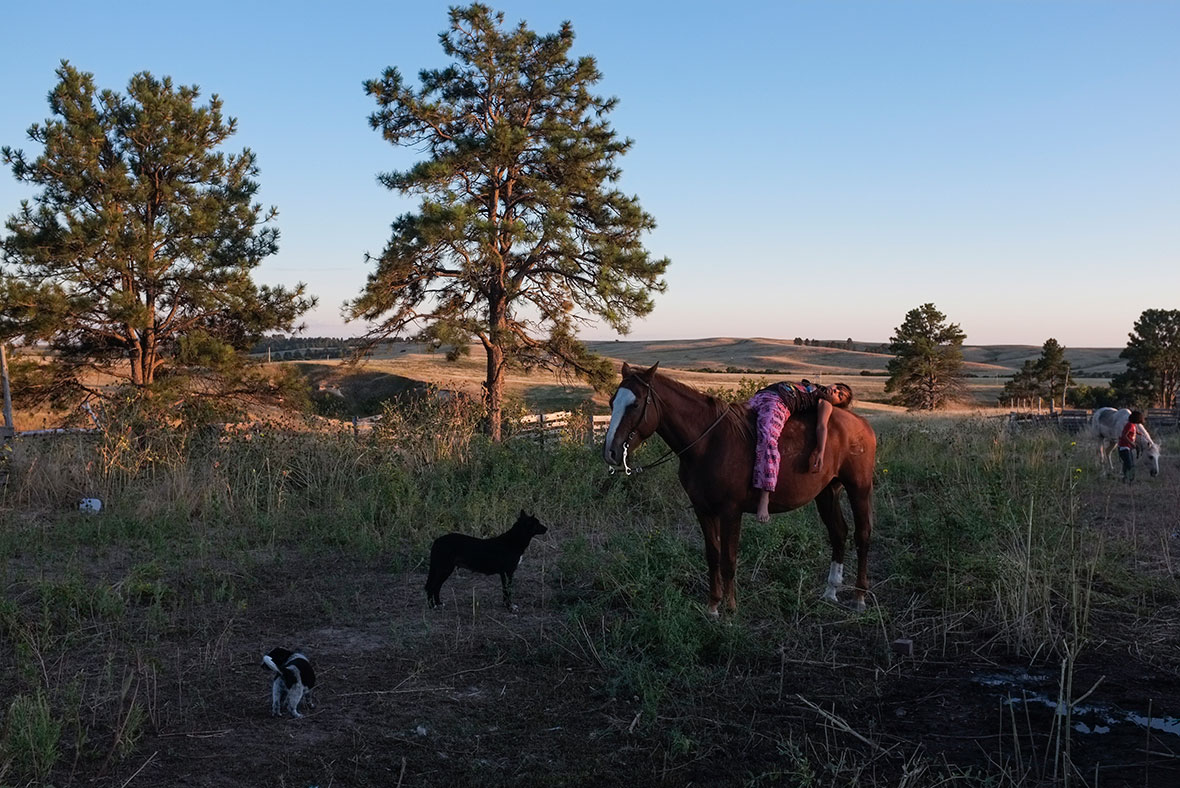


The images in the book are focused on Agtmael coming back to the US after years of covering war in Iraq and Afghanistan. Taken over a ten-year period, Agtmael's photos are a way of trying to understand his experiences and his country that show new, yet subtle ways of seeing America, reflecting on race, class, war, memory, family, and place. At the back of the book, there is a text booklet which offers further context behind the images, revealing hidden history and personal stories. The book acts as a sequel to Agtmael's critically acclaimed Disco Night Sept 11, a chronicle of America's wars from 2006-2013, featuring photographs that shift back and forth from the wars in Iraq and Afghanistan to the US.
In this gallery, IBTimesUK takes a look at some of the photos featured in Buzzing at the Sill, which you can order here:
Des Moines, Iowa, 2010
"At the annual Iowa GOP Ronald Reagan dinner, Sarah Palin gave the keynote speech, which was seen as testing the waters for a possible presidential run. She savaged Obama, both for his pacifism (withdrawing American troops from Iraq) and his militarism (ordering the surge in Afghanistan). She praised the armed forces while attacking the press ('people who are out there for the right of journalists to lie')."
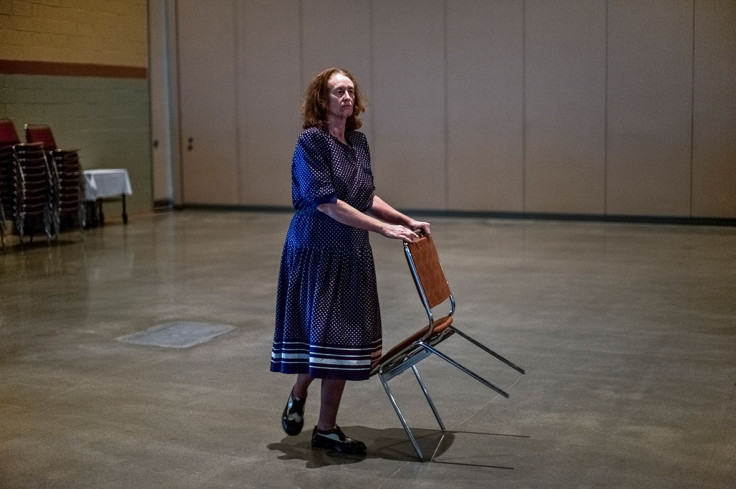
New Orleans, Louisiana, 2012
"A Second Line parade. A local African American tradition where brass bands — known as the first line — march in the streets and are joined by members of the public — called the second liners. The Second Line parades came about after the Civil War because insurance companies wouldn't cover ex-slaves. So African Americans formed benevolent societies and clubs that helped members defray health costs. The dues included a band for funerals and a public parade every year. Over time, their popularity evolved, and now there are parades almost every Sunday in New Orleans."
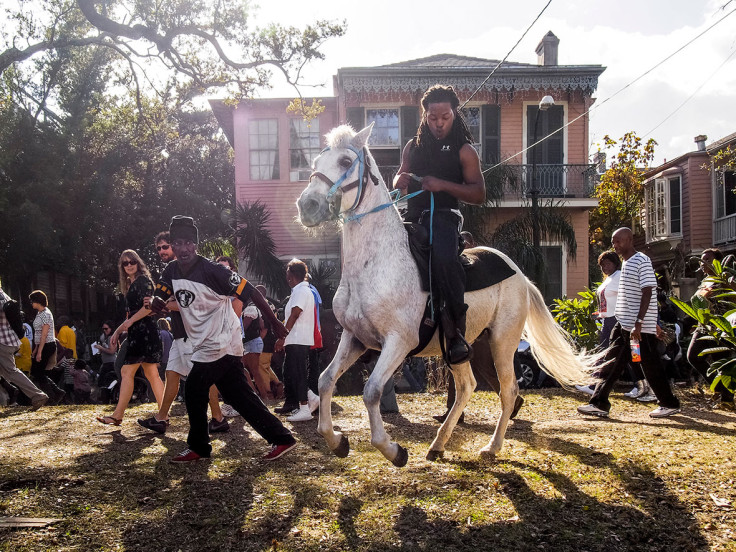
On the outskirts of New Orleans, Louisiana, 2009
Hunting rabbits with BB guns.
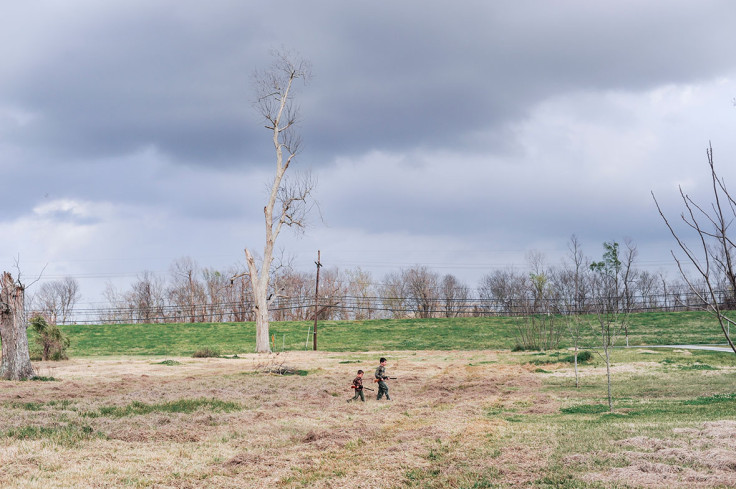
Louisville, Kentucky, 2015
Kentucky Derby aftermath.
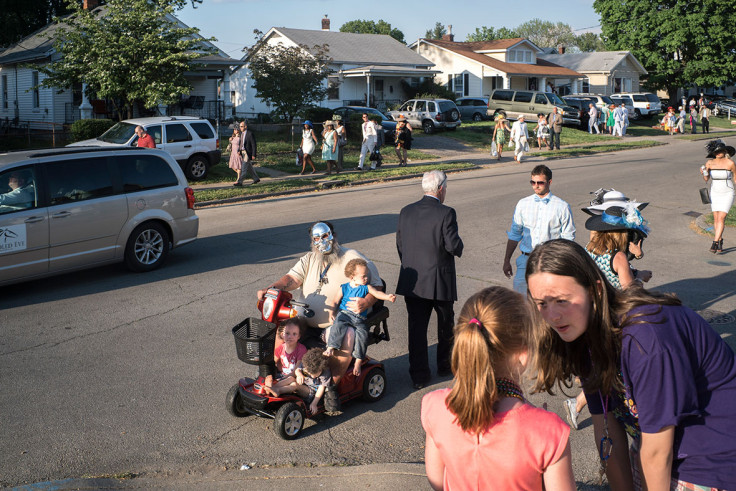
Pine Ridge, South Dakota, 2011
"While on a road trip with my friend Justin, we met a couple of guys and started chatting. They invited us to check out a spot where they had a rope swing, and on the way we picked up some beer. Dusk was falling and it became a little party; we lit a fire while some of their younger cousins swung over a deep chasm, with just a thin rope around their waist to secure them to the tree.
As the beer ran out and the night began to get colder, they invited us back to their home. Upon arrival, their sister (the matriarch of the family) smelled their breath and became furious. She asked us what possessed us to give them beer. She told us there was rampant alcoholism on the reservation and declared we were just another in a long line of white men exploiting the Lakota. We were filled with tremendous shame and apologized profusely.
As she explained the history of the tribe she mellowed and invited us to spend the night. We awoke in the morning to a beautiful dawn and the youngest children tending to the horses."
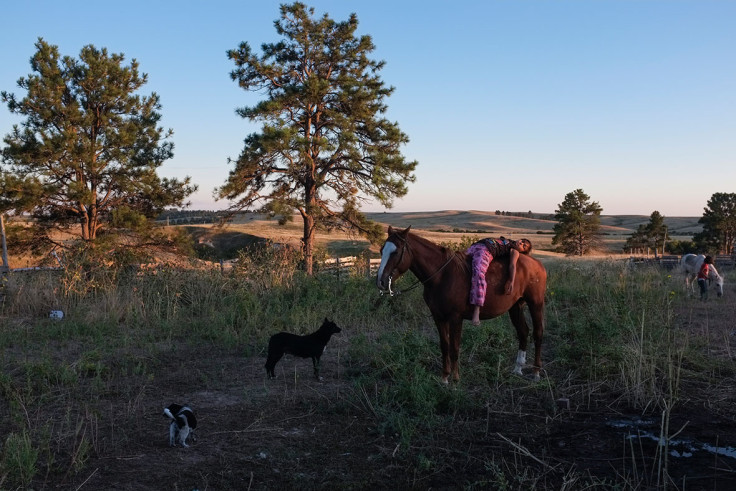
Portland, Oregon, 2015
"Iraqi refugees in a low income housing community in Portland. The area is home to several thousand Iraqi refugees. One of the main community organisers is Dr. Baher Butti, who fled Baghdad in 2006 after his community activism made him the target of local militias. A psychiatrist, activist, and writer, Dr. Butti spends much of his free time helping the recent immigrants adapt to life in America. Many of them don't speak much English and don't understand their rights within the web of bureaucracy. Although he is constantly overworked, he sees it as his responsibility to help his people get on their feet as fast as possible."
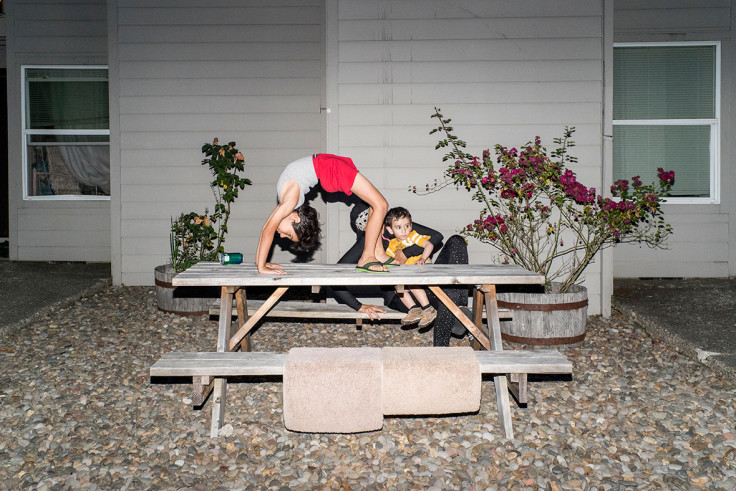
Detroit, Michigan, 2012
After dinner at Lyniece's house
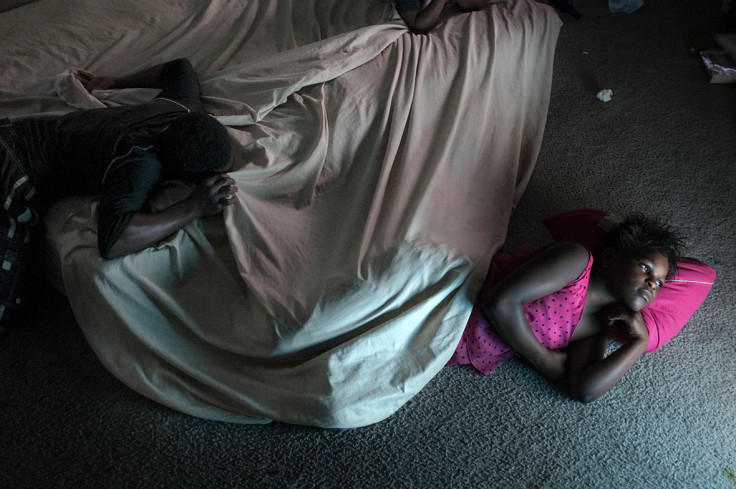
Detroit, Michigan, 2012
"Outside Lyniece Nelson's house. The family was still in shock over Treasure's death. One of her sisters said, 'I don't know if Treasure is asleep, or up. Because her pictures . . . every time I move around . . . they look like they are following me. She woke mama up to tell her she was leaving, she left . . . and that's it.'"
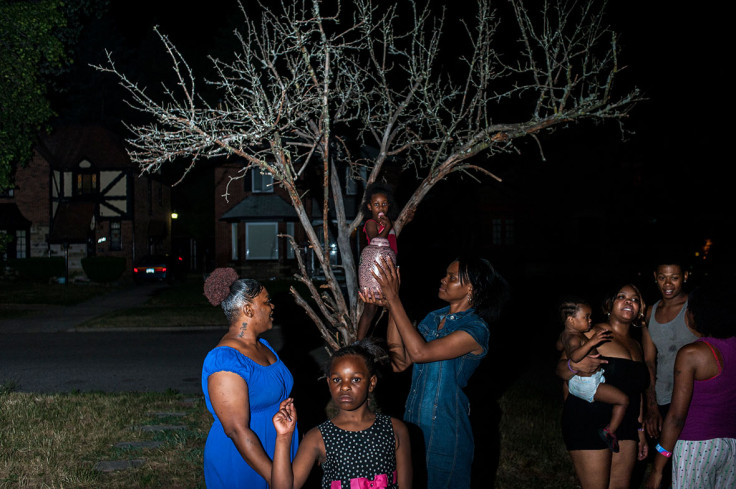
Brooklyn, New York, 2010
The Fourth of July
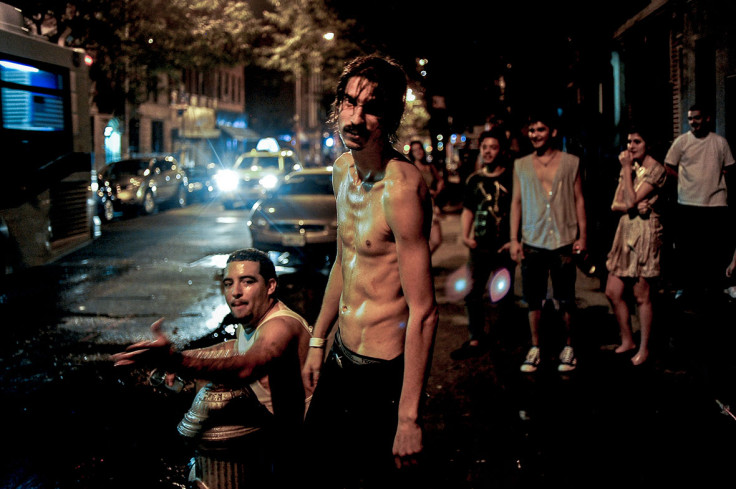
Hugo, Oklahoma, 2014
"The remnants of a Choctaw allotment after their forced expulsion to Oklahoma. The Choctaw tribe initially had vast territories in the southeast United States. By the early 1800s, the American government had begun a systematic, legislated removal of the Natives from their land. In 1830 the Indian Removal Act was passed by Congress and led to the exodus of tens of thousands of Native Americans. The majority of the Choctaw were forced to march 800 km to modern Oklahoma, watched over by white militias.
In the last major removal, in 1838, the remaining people of the tribes were rounded into camps and then pushed west in groups of 700 during the hottest and coldest months of the year. Up to a third of them died. It became known as the 'Trail of Tears'."
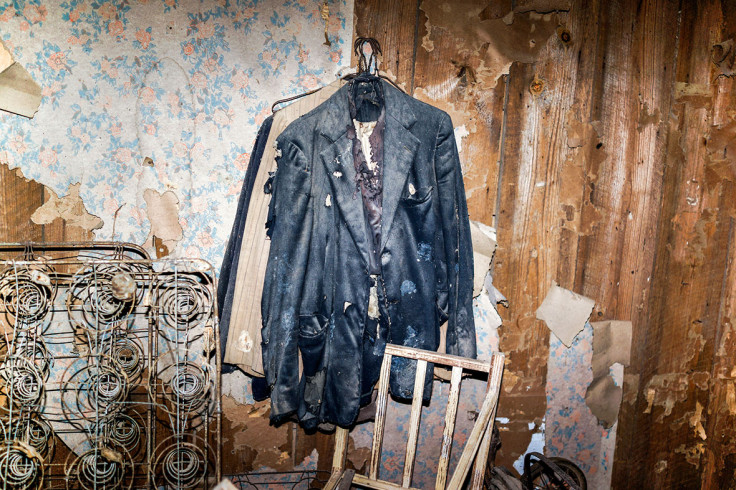
Maryland, 2015
"The KKK had boasted that dozens from their Klan chapter would attend the rally and cross burning, but there were only a few people when we showed up, including a British TV crew and a freelance photographer. After a few vague excuses, the six or seven Klan members changed into their robes and began a show amongst themselves.
One of the leaders started his speech. He shouted that there were Isis training camps being created by the United Nations with FEMA (Federal Emergency Management Agency), whose fighters would then take American's guns away. This plan was allegedly hatched by Barack Obama (or Barry Soetoro as he was called by the Klan. Soetoro was the surname of Obama's stepfather, and suggestion that he was briefly called Barry Soetoro in elementary school in Indonesia has been used as evidence that Obama was not born in America). After finishing, the hoarse-voiced Klan member burned the UN flag and stomped on it, to the tepid cheers from the small crowd."
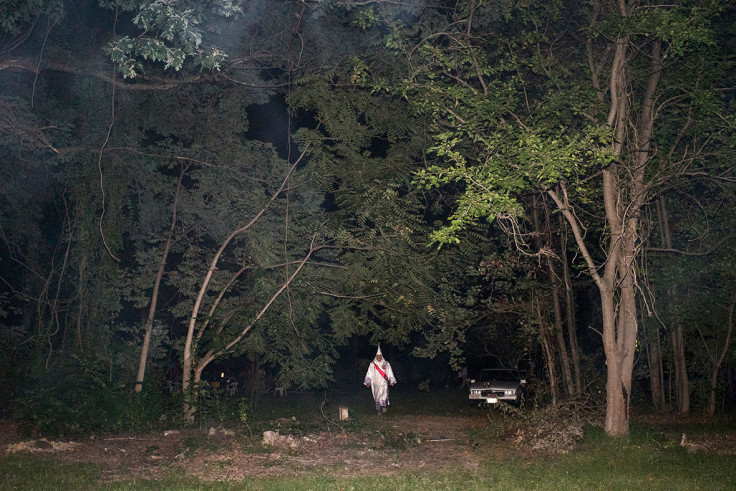
Branson, Missouri, 2015
The parking lot of Dolly Parton's Dixie Stampede.
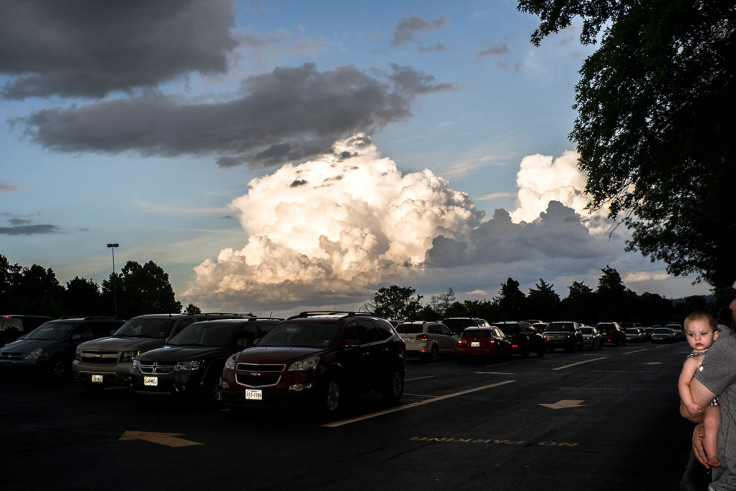
Visit the IBTimes UK Pictures page to see our latest picture galleries.
© Copyright IBTimes 2025. All rights reserved.






















